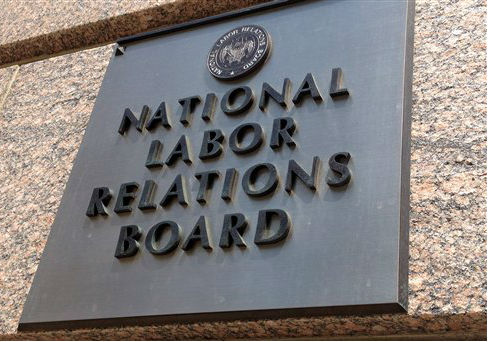Labor reforms aimed at curbing federal overregulation and returning balance to the National Labor Relations Board (NLRB) are essential to enforcing a pro-growth agenda, according to a new report.
The Competitive Enterprise Institute (CEI) report argues that the new Republican-controlled congress should make labor a top priority in the coming year to boost underemployment and increase growth. The recovery from the Great Recession has been sluggish in part because businesses, entrepreneurs, and workers are "subject to an array of obsolete New Deal-era labor regulations."
Congress should refocus its efforts on reversing that trend, according to CEI.
"Increases in productivity, not artificial increases in labor prices, are the key to economic growth and rising wages," the report says. "Members of Congress must resist the administration’s efforts to politicize regulation, adjudication, and legislation."
President Obama’s labor agenda has only exacerbated those problems. His top priority is hiking the minimum wage by 40 percent, while his appointees at the NLRB have fought to do away with the franchising model that employs millions of workers and speed up the union election process to tip the scales in favor of Big Labor.
Both of these policies represent a giveaway to the Democrats’ labor union allies, hampering the flexibility the economy needs to grow. While increases to the minimum wage and expansion of labor organizing help boost union dues, they also hinder employment. The nonpartisan Congressional Budget Office estimates that Obama’s $10.10 minimum wage would cut as many as 1 million jobs.
Trey Kovacs, a labor expert at CEI who coauthored the report, said Congress should seek to counter the injection of partisanship into labor regulation. The group has proposed countering the board’s influence by limiting its role as a labor arbiter and returning labor policy to the legislature and civil courts through the Protect American Jobs Act.
"The NLRB was supposed to be made up of impartial government officials, but now it’s basically political. Decisions come down in favor of unions when Democrats are in office and employers when we have a Republican president," Kovacs said. "Let’s get the partisanship out of labor relations."
The NLRB under Obama has vacated decades of precedent in favor of apparently pro-union policies, such as the establishment of micro-unions and the erosion of secret ballot elections. The administration is using regulatory fiat to change the face of labor relations.
"The reason why Obama is using agencies is that he doesn’t have to work through the legislature. They’re pushing the limits on what these agencies can do," Kovacs said.
Obama will likely veto the legislative proposals in the report, but Congress should use its majority to draw attention to the role that regulators play in the job market.
"During the Obama administration, the National Labor Relations Board, composed of a majority with the predisposition to a pro-union viewpoint, has issued many decisions overturning long- standing case precedent and proposed rules that tilt the playing field in favor of organized labor at the expense of employees and the free flow of commerce. Currently, the NLRB operates to benefit labor unions, not the public interest, in labor disputes," the report says. "Congress could go a long way toward reining in the NLRB by passing legislation to reverse some of its more partisan rulemakings and decisions."
Kovacs says the GOP should issue "good legislation" to contrast its employment policies with that of the White House. Highlighting the growing impact that over-regulation has on the labor market can rally voters to returning balance to labor policy.
"The partisanship that has come over labor policy in the US is something that needs to be addressed. It’s been a problem for decades and Congress needs to put legislation out there to campaign for public support," Kovacs said.
